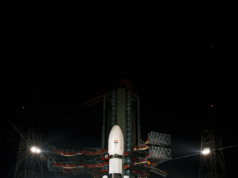NEW DELHI: Indian boots on the ground in Afghanistan “is a terrible idea, will be a dangerous, costly deployment,” says Dr Avinash Paliwal, Associate Professor in International Relations, School of Oriental & African Studies (SOAS), University of London, adding, “but, both sides are on the same page about other assistance… offering more military support… a lot of training. It (India) can also offer financial assistance that Kabul can use at its own will… to procure weapons from elsewhere.” Analysing National Security Adviser (NSA) Ajit Doval’s two-day visit to Kabul, the author of ‘My Enemy’s Enemy – India in Afghanistan from the Soviet Invasion to the US Withdrawal’, said, “from the list of officials (Doval met) it’s very clear that India wants to cover all its political bases… so, this is one way of New Delhi trying to tell them to reduce political infighting because that’s the only way forward in terms of having any sort of coherent negotiation strategy in Doha with the Taliban.” Speaking with StratNews Global Associate Editor Amitabh P. Revi, Dr Paliwal offered a historical parallel (with caveats) of former PM Prime Minister Rajiv Gandhi sending R&AW chief AK Verma to assess the viability of President Najibullah’s government in 1989. “If tomorrow, this government collapses, whether it’s because of its internal problems or in combination with the Taliban military onslaught, how do we move forward from there?” the Deputy Director, SOAS South Asia Institute asked, pointing out “that’s a very, very reasonable question to ask. And that’s the comparison I can imagine the NSA being quizzed by Prime Minister Narendra Modi, about whether we are putting our bets on the right horse or there’s some change that we must make sooner or later.”
On talking to the Taliban, Dr Paliwal argued, “it can’t afford to be seen as talking to India. This is a compulsion that any Taliban leader, whether a military shura or political shura leader, sitting in Quetta, in Doha will very clearly say, that look, if we start talking to the Indians openly, we will have a lot of questions and a lot of costs from the ISI, from Pakistan. That is a compulsion that they have not really been able to liberate themselves out of. So, I would see the Taliban openly talking to India as the ultimate litmus test of their foreign policy independence. If Mullah Baradar comes and says, officially, we want to talk to India and will be open to respecting India’s red lines in Afghanistan, sensitivities, its interest, that is the day, I would say, yes, the movement has matured out of the influence that it has been under, of the Pakistani security establishment. And that is one reason, that’s one thing which I don’t foresee happening at least for now.”




